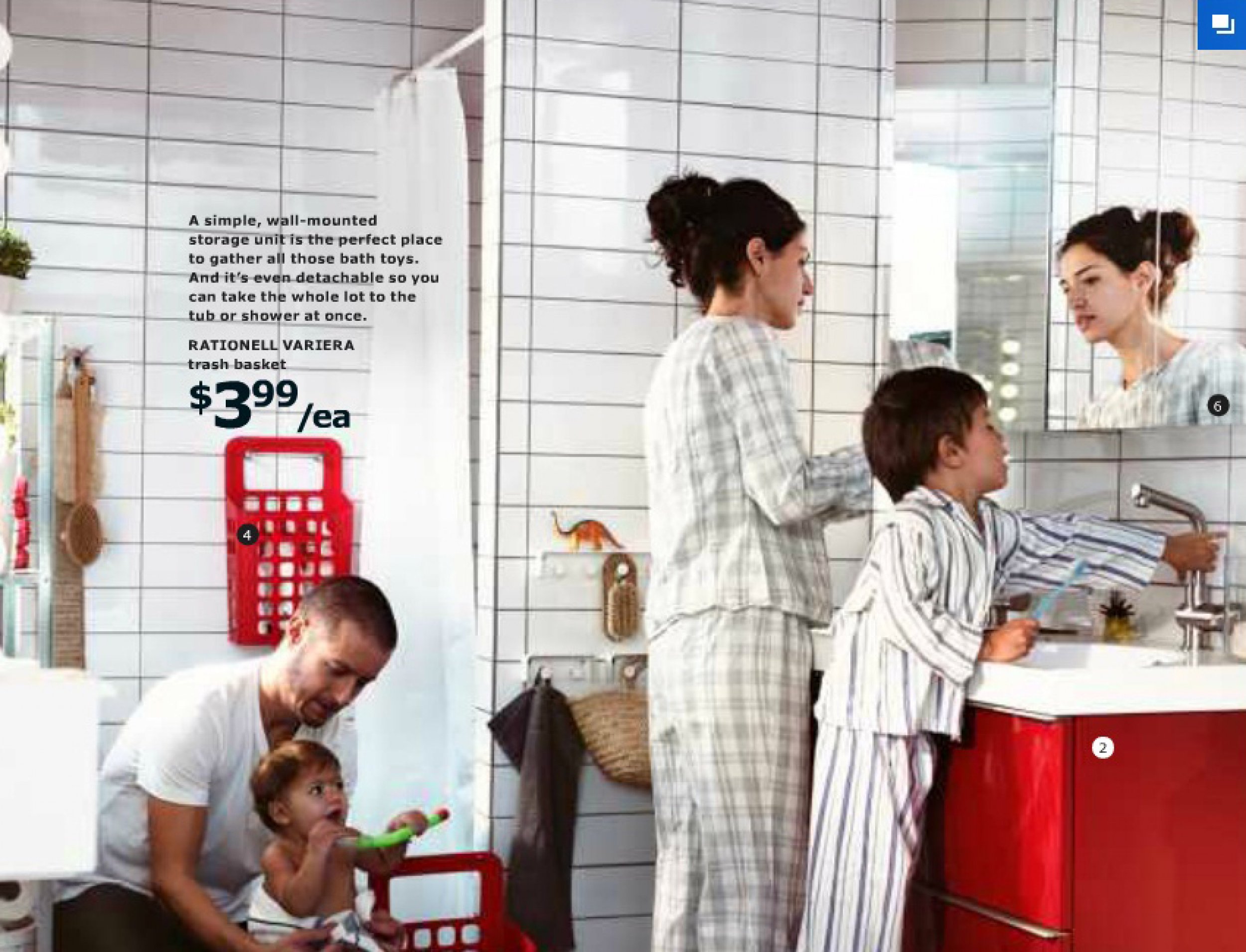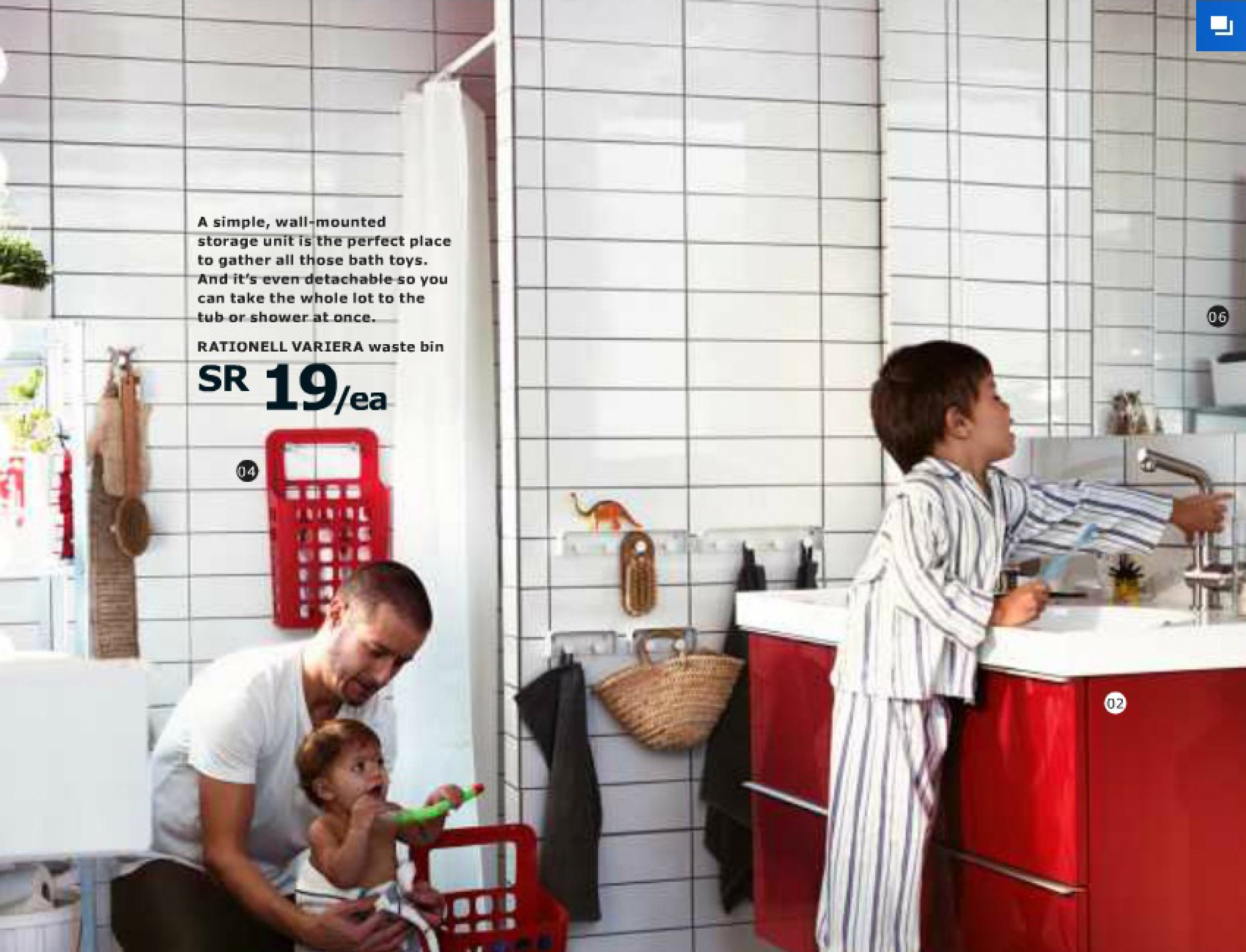Swedish Furniture Giant IKEA Scrubs Women From Saudi Catalog: Side By Side Comparison
Swedish furniture group Ikea is really sorry it removed women from the Saudi version of its 2013 catalog after it was called out by the Stockholm edition of free daily newspaper Metro. The company, based in a country that ranks among the world’s top nations for gender equality, issued a mea culpa on Monday.
"We should have reacted and realized that excluding women from the Saudi Arabian version of the catalog is in conflict with the Ikea Group values," the company said in a statement obtained by the Associated Press.
Swedish Trade Minister Ewa Björling told the weekly that the images “show we have a long road ahead when it comes to gender equality in Saudi Arabia."
Some ad agencies in Saudi Arabia completely eschew depicting women. Faces of men and women are sometimes digitally masked to apply a more austere interpretation regarding depicting the human form in Islam, which depends on the religious leanings of individual ad agency, executive or client.
Legally speaking, the Saudi Ministry of Culture and Information allows the depiction of women as long as they are seen wearing jilbab (a loose-fitting robe that’s usually black) and hijab (the head scarf). But the regulations are far more loosely applied to foreign magazines and catalogs. For the most part, unless adult female models are depicted seductively, especially with low-hanging cleavage-revealing necklines or showing bare legs, the publication is allowed to be distributed.
However, that can change at any time and at the whim of government censors; all it takes is for one public outcry or a heavy-handed ministry censor to have all of Ikea’s catalogs removed from the marketplace. The decision to erase women from the catalog was symbolic of multinational companies’ willingness to abide by local cultural standards in order to make money even if those standards are considered reprehensible to the culture where the company is based.










© Copyright IBTimes 2024. All rights reserved.












